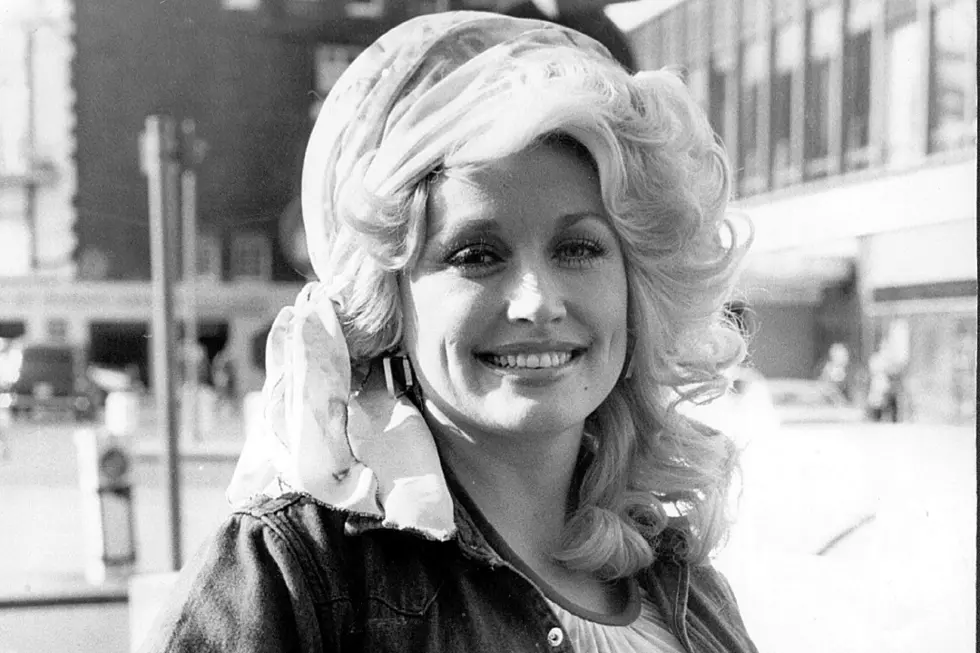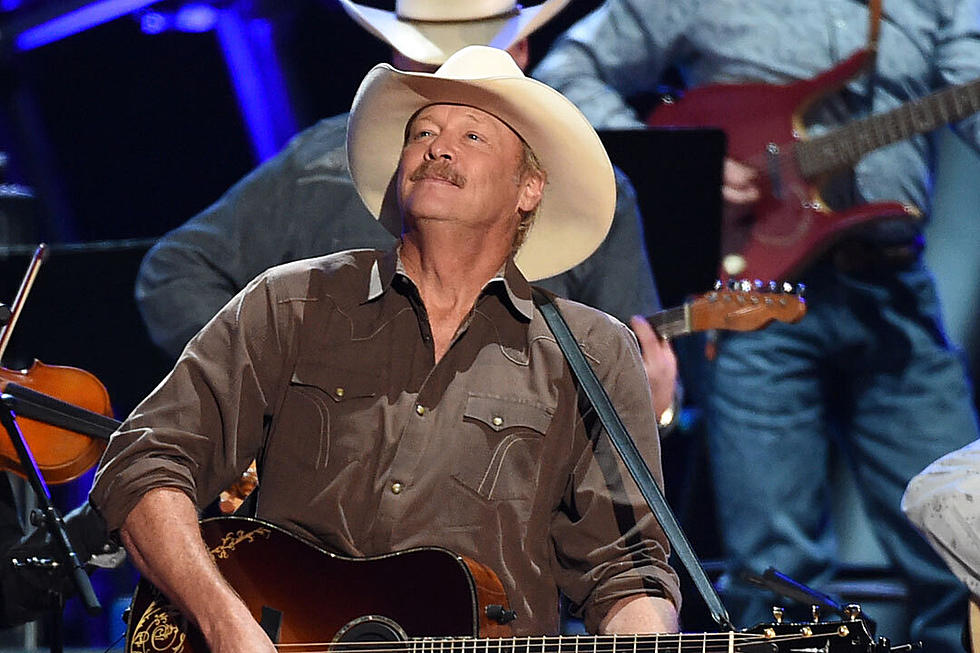
The Pros and Cons of Spotify
There's no question that Spotify is becoming more and more of a marketplace force in country music and beyond, despite much controversy among the artistic community. But will it be the ruin of the music business, as some have suggested — or its savior?
Taylor Swift brought an enormous amount of attention to the issue of Spotify's revenue streams last November, when she pulled her catalog from the service, which is the largest streaming service in the world. Some pundits point to the overwhelming success of her first-ever pure pop album, 1989, as proof that if fans can't get an artist's work via streaming, they will pay for it by purchasing the album. Big Machine subsequently pulled the latest offerings from Justin Moore and Brantley Gilbert from Spotify as well, though the rest of their catalogs remained. Jason Aldean also pulled his latest album, Old Boots, New Dirt.
According to Time, artists earn an average of less than one cent per play on Spotify — between $0.006 and $0.0084. That's a primary sticking point for many acts, both at the major label and independent levels.
Rosanne Cash has been an outspoken advocate for artists' rights. She is a board member of the Content Creators Coalition, and she testified before Congress in 2014 as part of an ongoing effort to bring about some degree of marketplace fairness in royalty payments to artists. During that testimony, she revealed that she received payments of just $144 on 600,000 streams from Spotify.
"It's a ridiculously miniscule amount," Cash tells Taste of Country with a laugh. She cites the free tier of the streaming platform as particularly problematic. Spotify offers consumers the choice to stream music free with commercials, or pay five or ten dollars per month to avoid commercials and access special features.
Cash released her most recent album, The River & the Thread, in 2014 via Blue Note Records, which is a division of Universal Music Group. She took home three Grammy awards in February for Best Americana Album, Best American Roots Song and Best American Roots Performance, the latter two for "A Feather's Not a Bird." She says part of the downside to Spotify is its byzantine payment structure.
"Streaming services like Spotify are not music companies," she points out. "They're tech companies, and they use music as a loss leader to create income for themselves. There's a serious lack of transparency in their payments to musicians from streams. It's impossible find the trail of those payments, and they're not standardized. If I compare my payments with other musicians, it just doesn't make sense. I think the lack of transparency is a huge problem, even apart from the fact that they don't pay enough."
I think the lack of transparency is a huge problem, even apart from the fact that they don't pay enough.
David Macias is the co-founder and president of Thirty Tigers, which handles marketing, distribution, promotion and management for artists. It's a progressive business model that pays 75 percent of all royalties back to the artist, and it's been a Nashville success story at a time when most of the major labels are struggling and losing market share. According to Nashville's The Tennessean newspaper, Thirty Tigers — which helped break artists like Sturgill Simpson and Chase Rice — took in $14 million in revenue in 2014, and is poised for another banner year in 2015. The label is currently working releases from Aaron Watson, Will Hoge and Sunny Sweeney, among others, and has also expanded into film and other musical genres.
Macias says Spotify is actually a means to generate revenue, if an artist hasn't signed away too many rights.
"I think it's a really valid business model based around a really good consumer experience," he tells Taste of Country. "I feel like Spotify gives people a way to listen where they can gain access to whatever they want in a subscription form, which I think has proven to be — if you look at markets like Sweden, where the streaming model has grown to full maturity, it's been a positive for the music community there, the music business there. The rights holders are getting paid."
He adds, "Now, by rights holders, I don't always mean artists, because artists are subject to different types of business relationships, depending on how they take their music to market, but certainly the rights holders are getting paid."
Cash isn't so sure about that. "Some people say, 'The problem is the major labels. They're keeping your money,'" she says. "I don't actually see that that's the problem. I've traced some of this back, and it's true that if you don't own your own masters or your own publishing, some of that money does disappear to those files, but at the same time there's this huge black hole that is not accountable, that Spotify says the money is being paid out, but we don't see it."
Patrick Sweany is a blues-rock and roots artist who is in a unique position due to a single song of his titled "Them Shoes," which started doing well at Pandora after the site's algorithm started pairing it with songs from the Black Keys, Jack White and more. The exponential exposure and subsequent revenue has allowed him to stay in business and even grow his touring base, but he says if those streams had come via Spotify, it would be a different story.
"That song outsells the rest of the catalog combined by 2,000 percent, seven years after release," Sweany says. "Spotify to a degree has helped. I'm added to a lot of playlists along the lines of the same algorithm. I tend to see a lot more fans at shows, people who discover me through Spotify playlists. But as far as revenue from Spotify, I think the royalty rate is not a good thing. I live and die because of Pandora, but they have a much higher royalty rate. I really feel that Spotify has done it on the backs of the artists that generate the revenue."
He adds, "If Pandora reduced their royalty rate to what Spotify pays, I would not be able to continue to be a full-time musician. It would not be financially possible, even with the gains that this has afforded me because of the sheer number of plays I have received."
Dean Miller has released albums via Capitol, Koch and Universal South, and has written songs for Trace Adkins and Terri Clark. He released his most recent album, 'Til You Stop Getting Up, independently in 2014, and he also makes a crucial distinction between Spotify and other streaming services.
"The difference between this and stations like Pandora is that you can't control the songs there," he tells us. "Spotify is like owning the song. Why should you buy it, if you can do everything with it that you can do with a song you own? So that's the fundamental difference."
As Macias points out, that argument is part of a larger conversation about the music business moving from a traditional acquisition-based business model to what he calls a utility model.
"It feels free, but it's in fact not free," he states. "I draw the parallel to Spotify and our relationship with water in our homes." He points out that artists have always been used to selling a product like a recording or performance to a consumer, and that's the end of the transaction.
"That's the way things have always been in the music business, and now we have more of a utility model, and this feels weird and unsettling to artists the way that it would feel weird and unsettling to all of a sudden have coin slots put in your home, so that every time you wanted a glass of water you have to pay a dime, or every time you want to take a shower, you have to pay a quarter," he says. "It would feel weird and unsettling, like, 'Man, this is not what I'm used to.' So I think a lot of it is the discomfort from the transition from an acquisition model to a utility model."
Like many others, Miller still makes his music available via Spotify despite his misgivings. "In my position, it's just a means to be heard. It's just a necessary evil," he assures. "You need all of the exposure you can get to try to call attention to your project. You've kinda got to be there, but you're not going to make any money from it. This is the position many of us are in: how do you keep making records if people won't pay for them? How do you pay to make a record?"
I think a lot of it is the discomfort from the transition from an acquisition model to a utility model.
Granger Smith has had a lot of success in his home state of Texas and beyond by building his audience independently, and he worked with mainstream Nashville producer Frank Rogers (Brad Paisley, Darius Rucker) for his new single, "Backroad Song." He sees Spotify as a useful tool in building his career.
"To look at it just monetarily is a little obtuse from an artist's perspective, in my humble opinion," he says. "We're building not just an artist, not just a song, but we're building a brand, just as Nike builds a brand, or McDonald's. And in building that brand, there's a lot of outlets to utilize to bring attention and raise awareness of that brand. Ultimately most artists, the way that we make money is selling tickets to concerts, and the bigger the brand, the more ticket sales in bigger venues, and the more money that artist makes."
Smith concedes that the pay scale for Spotify is "very low," and that "of course it doesn't translate to sales on iTunes or any other digital format. That's a no-brainer." But he insists the trade-off is more than worth it for an artist in his position.
"Taylor Swift is on another planet, and the volume that she does is on another level from everybody else," he observes. "So in a way I can see that. Maybe she's gonna lose millions and millions of dollars. But at my level, it's really important to be on all aspects of this game — Twitter, Instagram, Facebook, Snapchat, Pandora, Spotify, SiriusXM, YouTube. I want to be on all of that, and I feel like I'm missing fans if I'm not. The money that I might lose from my existing fans, I don't think that outweighs new fans coming on board."
Cash disagrees with the notion that the exposure outweighs the economics.
"I just don't believe this exposure argument. If I had a dime for every time I've heard the exposure argument, I wouldn't need the exposure," she says with another laugh. "That goes back to what I was just talking about, the tech industries exploiting musicians, using our copyrighted material for their own gain and saying it's exposure. You don't steal other people's copyrighted material and say, 'I'm gonna show a bunch of people, and you'll have exposure.' The bottom line is, it doesn't lead to more record sales. The record industry is tanking, sales are down tremendously, an enormous amount. So clearly that argument doesn't work."
Macias also disagrees with the exposure argument, but for a very different reason.
"The point of Spotify is not exposure. Spotify is, in and of itself, is a viable retail account that pays money," he argues. "The inference is that somehow Spotify is something we have to put up with to get greater exposure. My whole point is, Spotify is a viable financial model. Sales are what we're used to.That's the end result in an acquisition-based model, as opposed to a utility model. I don't feel like the exposure opportunity is one where the end result should be leading to sales. It should lead to consumption, which happens right then and there at Spotify. Eighty percent of all music business revenues in Sweden come from Spotify, and the overall revenues from the music business [there] have gone up every year since 2008, when Spotify started."
According to the Financial Times, revenues from streaming overtook revenue from CD sales in the U.S. in 2014 and are continuing to rise as other revenues continue to fall. That's certainly a better alternative than outright piracy, and if more American consumers will embrace becoming subscription users — which is something Universal is reportedly pushing through licensing negotiations with Spotify — then the model that seems to be working elsewhere could also work in the U.S.
"In the aggregate you have to ask yourself, is it a helpful thing for the ecosystem, and I think on the whole that it is," Macias states. "Thanks to overall revenues in Sweden, among other things, that answer is an affirmative to my satisfaction. I do feel that streaming, as long as the continued emphasis can be placed on getting listeners to be subscription holders as opposed to listening through the app-supported way, then I we're gonna see those revenues continue to rise."
Smith intends to use Spotify to help him continue the mission he's been on all along: to bring more fans to awareness of himself and his brand.
I know that streaming is the way of the future, it's here to stay, people want music on demand, and the industry has to accommodate that.
"Like it or not, it is the future in a lot of ways, or the beginning of what is going to be the future," he states. "I'm an independent artist, and our goal is to sell out concerts everywhere we go. And Spotify helps me do that."
There are other hopeful signs on the horizon. Cash is looking forward to a bill that Congressman Jerrold Nadler (D-N.Y.) is set to introduce in April that she hopes will help close the loopholes that are currently a part of what she calls "antiquated" intellectual property laws in the U.S., many of which date back to before World War II.
"We think it's a really big step forward," she says, adding, "I don't vilify Spotify. I don't say it's bad, that we have to go back to brick-and-mortar sales of records, that I want to turn back the clock. I don't feel like that at all. I know that streaming is the way of the future, it's here to stay, people want music on demand, and the industry has to accommodate that."
"What I would like to see happen, besides all of the copyright laws being re-written for the digital age," she says, laughing, "my dream is that the value of music, people will wake up to the fact that music isn't just in the air, that there are actually people behind music who create it, who have copyrights that should be respected like any other copyrights. I don't think that we can just set ourselves up for conflict and say, 'Streaming is bad, it's going to destroy us.' I think we have to find a way to accommodate ourselves and find a way to get paid fairly for our work."
Country's Top 10 Risk-Takers
More From Taste of Country








![See Country Stars’ Coolest Tattoos [Pictures]](http://townsquare.media/site/204/files/2023/08/attachment-AshleyJellyMorgan.jpg?w=980&q=75)
